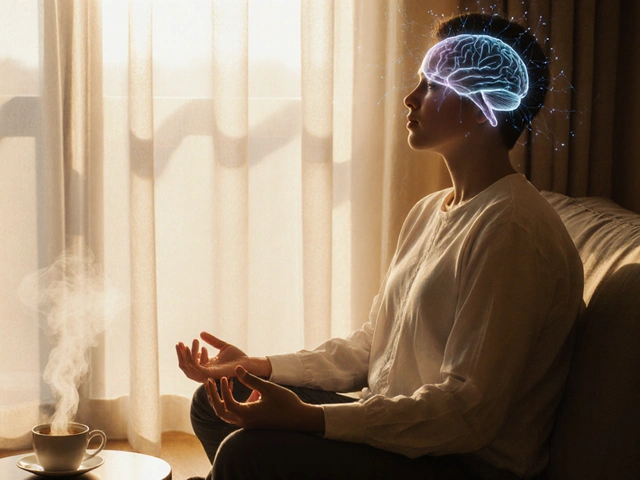Relax: Simple, Fast Ways to Feel Calmer Today
Need calm right now? A single breathing trick can lower your heart rate in under a minute. Relaxing doesn't require long rituals or special gear—just a few clear moves you can use anywhere. Below are quick resets you can start using immediately and daily habits that build lasting calm.
Try this 3-minute reset
Want a reset you can do at work, in your car, or before bed? Try this short routine:
1) Sit up with both feet on the floor. Breathe in through your nose for 4 seconds. Hold 4 seconds. Exhale through your mouth for 6 seconds. Repeat 4 times. This slightly longer exhale helps shift your nervous system toward calm.
2) Progressive release: tense your shoulders and neck for 5 seconds, then drop them and breathe out slowly. Move down the body—hands, chest, belly, hips—tensing briefly then releasing. That contrast makes relaxation much clearer.
3) Finish with a 30-second grounding check: name three things you can see, two you can touch, and one you can hear. The brain settles fast when you shift focus to the present.
Daily habits that actually work
Small, regular choices build resilience. Pick two you can stick with and do them most days.
- Short meditations: start with 2–5 minutes. Count breaths or use an app for guided sessions. Consistency matters more than length.
- Move with purpose: a brisk 10-minute walk or gentle stretching releases tension and clears your head. If you exercise, consider a sports or neuromuscular massage after tough sessions to speed recovery and ease tightness.
- Use scent with care: lavender for sleep, citrus or peppermint for a quick lift. A few drops in a diffuser or on a tissue can steer your mood without fuss.
- Try biofeedback tools: simple wearables and phone apps show your heart rate or heart rate variability (HRV). Watching your numbers while practicing breathing makes progress obvious and motivating.
- Feed your brain: include omega-3 rich foods like salmon, walnuts, or chia. Small nutrition wins affect mood and stress tolerance over time.
Want something creative? Art, music, or movement for 15 minutes breaks the stress loop and gives your mind a break without forcing you to “relax.” If pain or chronic tension blocks calm, look into myofascial release, neuromuscular work, or gentle abdominal or Ayurvedic massage—those methods often clear the physical barriers to feeling peaceful.
Pick one quick reset and one daily habit. Use the reset whenever stress spikes; use the habit to lower the number of spikes you get. Small, reliable steps win when you want real, lasting calm.

How Meditation Techniques Boost Your Sleep Quality
Meditation has long been heralded for its myriad benefits, with improving sleep quality emerging as a standout advantage. This practice can train your brain to embrace relaxation more naturally, which can significantly ease the process of falling asleep. By dedicating a few moments each day to meditation, you might find yourself drifting off into dreamland with newfound ease. Beyond its calming effects, meditation enhances your ability to maintain a sound, uninterrupted sleep cycle. Delve into various meditation techniques and how they can enhance your nightly rest.

Shiatsu Therapy: How It's Changing Lives Today
Feb, 6 2026



